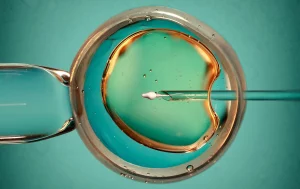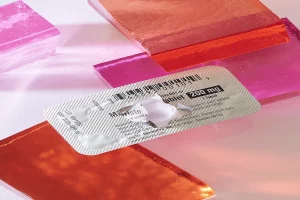BACK IN 2011, the United Nations voted to make October 11 an annual holiday: the International Day of the Girl. Designed to raise awareness of gender equality issues around the world, particularly in education and health sectors, International Day of the Girl highlights the achievements of young women from across the globe and offers first world citizens opportunities to get involved on local and international levels.
In light of the fact that the UN’s Millennium Development Goals (MDGs) — such as clean water access and gender equality — were not realized by 2015, the international organization has created a new set of 17 Sustainable Development Goals (SDGs) for 2030. SDGs include eradication poverty and hunger (#1 and #2), gender equality (#5), and clean water and sanitation (#6).
Because many of these issues disproportionately affect girls and young women, this year’s International Day of the Girl focused on the ways in which reaching these SDGs can impact and improve the lives of adolescent girls. UNICEF notes that “[t]here are more than 600 million girls aged 10 to 19 in the world today”: roughly 8 percent of the global population. That is a huge demographic, and one that is too often ignored due to sexism and age-based discrimination.
If you missed International Day of the Girl 2015, that’s okay: I still encourage you to make an effort to improve the lives of young women near you and across the globe. Here are five easy ways to get started.
Talk to the girls in your life.
This is pretty simple, right? Just talk to the young women around you and spend time with them, because mentoring is important.
If you aren’t sure how to start the conversation, you can begin by asking them what problems they and their peers are facing in school or at work. Do the girls in your life know what “intersectionality” means? Have they seen instructors reinforce societal double-standards or fight them? Are racially- and/or sexually-charged comments in their workplaces going unaddressed?
Be sure to also educate them about the conditions young women in refugee situations and minority communities must navigate. Keep in mind: the goal of this conversation is not to make them realize “how good they have it,” but to shed light on the different adversities facing their global peers.
Empower the young women you engage to speak up about these issues, and help them find a platform where their voices may be heard. If a niche doesn’t already exist for them, grab a chisel and start carving.
Sign up for Girls on the Run.
Girls on the Run is a nonprofit organization that holds 12-week-long camps in communities across the country. Imagine these courses as intensive, twice-weekly Girl Scouts meetings. Participating girls learn valuable character skills and plan community service projects while gearing up for an end-of-camp 5K.
If you’re interested in supporting Girls on the Run, the organization has plenty of space for volunteers and partners. You can coach, become a running buddy, donate, or compete in athletic events to raise money for Girls on the Run.
Donate to a pro-girl charity.
There are myriad organizations working today to improve the lives of young women in the U.S. and abroad, so you’re bound to find a cause that resonates with you and is worthy of your hard-earned money. Whether you want to help girls and young women pursue STEM careers or prevent child marriage, there are charities already working to meet the same goals.
Volunteer with a local organization.
Obviously, Girls on the Run isn’t the only mentoring program out there. Consider finding or starting a local chapter of Girl Scouts, 4-H, Boys & Girls Clubs, or Big Brothers Big Sisters. Remember: if you have a criminal record that prevents you from being a volunteer with these groups, you can still support them by donating or purchasing fundraising items.
Of course, plenty of other, non-club organizations help young women every day. Soup kitchens, rape crisis centers, and Planned Parenthood clinics always need volunteers to serve women and children in need. Local family counseling centers often have programs designed to help parents earn college degrees by providing tutoring, resume, and childcare services.
The point is: if you have any talents to share, there is a pro-girl organization out there that needs them.
Spread the word.
One of the most important ways of celebrating the spirit of International Day of the Girl is also the easiest. As in the first point above, all you have to do is talk. Make sure your friends and relatives know about the problems facing young women in the U.S. and abroad, and encourage them to get involved. Write to your politicians to let them know how you expect them to support girls’ potential. Reach your followers by sharing links to pro-girl websites on Facebook, Twitter, and Pinterest.
Activism is contagious. We should all make sure to pass it along.

















